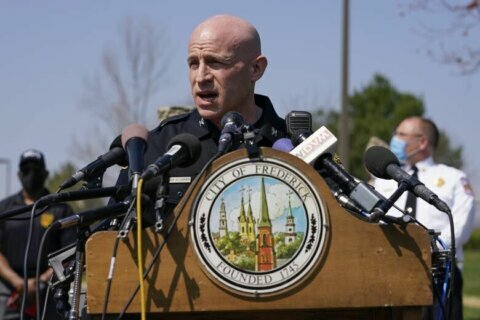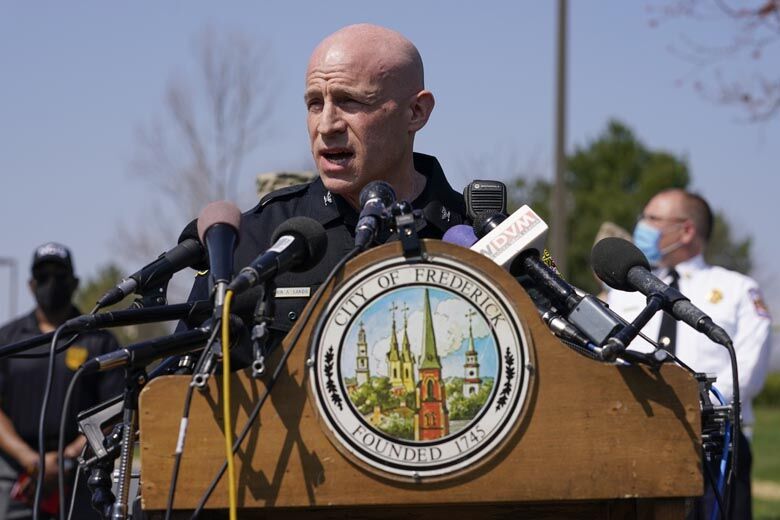
A new program in the City of Frederick, Maryland, aims to better de-escalate emergency mental health calls.
It’s called the Crisis Response Car, and the new unmarked vehicle will have a mental health professional from Sheppard Pratt, an EMT or paramedic and a Frederick police officer on board.
The goal?
“To improve outcomes, decrease the need to use force and mitigate the need to use the criminal justice system as a means for dealing with people in crisis,” Frederick Police Chief Jason Lando said.
He said it will start as a six-month pilot program on July 1 and run through the end of the year.
“As I looked around, I noticed there weren’t many programs that paired all three disciplines together, and I think that gives us a very unique opportunity here in Frederick,” Lando said.
He said five officers have stepped up and volunteered to be put on the program.
“We realize that a lot of these situations don’t require a police officer, but I don’t want to put our co- responders, our EMTs and our mental health professionals in a situation where they are dealing with someone in crisis. And maybe the situation does turn violent and the police aren’t there to help,” Lando said.
“There’s been an increase in 211 calls locally, and the needs of mental health services are rising,” said Frederick Mayor Michael O’Conner.
Montgomery County, Maryland, is also looking at the possibility of having mental health counselors with police. According to a Washington Post article, counselors in Montgomery County know how to de-escalate a mental health event but still want police backup.
Howard County Executive Calvin Ball is announcing a Memorandum of Understanding on Thursday between the Howard County Police Department and Grassroots Crisis Intervention Center to address non-emergency mental health 911 calls.
“Every day people experiencing mental health challenges in our community call 911 in search of support and someone to help in a crisis,” Ball said. “When there is not an immediate safety issue, many of these callers would be best supported by being directly connected with mental health professionals, instead of receiving a police response.”









